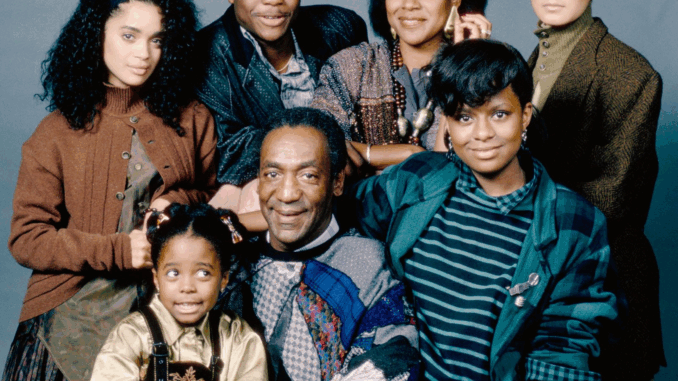
When The Cosby Show premiered on NBC in 1984, it wasn’t just another family sitcom—it was a revolution. For eight seasons, the show redefined the portrayal of African American families on television and became a cultural touchstone in American entertainment. Created by comedian and actor Bill Cosby, the series followed the lives of the Huxtables, an upper-middle-class Black family living in Brooklyn, New York.
Changing the Face of American TV
At a time when television often depicted Black characters through stereotypes or in roles of economic struggle, The Cosby Show introduced viewers to an African American family that was educated, loving, and humorous. Cliff Huxtable, played by Cosby himself, was an obstetrician, while his wife Clair was a successful lawyer. Their five children navigated everyday issues in a home full of warmth, life lessons, and laughter.
The show’s relatability, humor, and heart made it a massive success. It topped ratings charts for five consecutive seasons and became one of the most-watched shows in American television history. But more importantly, it opened doors. The Cosby Show paved the way for future Black-led sitcoms like Family Matters, The Fresh Prince of Bel-Air, and Black-ish.
Cultural and Educational Impact
Beyond its comedic appeal, the series subtly championed education, personal responsibility, and strong family values. Episodes often featured historically Black colleges, jazz music, and positive role models—giving young viewers, especially Black youth, something they had rarely seen on TV: people who looked like them succeeding, loving, and thriving.
Educators and sociologists have often cited The Cosby Show as an important tool in shifting public perception of African American families during the 1980s.
Legacy Tainted by Controversy
However, the show’s legacy has become more complex in recent years. Bill Cosby’s criminal conviction for sexual assault (later overturned on a legal technicality) deeply damaged his reputation and prompted a re-evaluation of his work. For many, it’s difficult to separate the character of Cliff Huxtable—a beloved TV dad—from the real-life allegations against the actor who portrayed him.
While Cosby was once hailed as “America’s Dad,” his fall from grace has sparked important conversations about the separation (or lack thereof) between art and artist.
Conclusion: A Landmark That Cannot Be Erased
Despite the controversy surrounding Bill Cosby, The Cosby Show remains a milestone in American television. Its cultural significance—both for African American representation and for sitcom history—is undeniable. It showed that Black families could be front and center in mainstream media, with stories full of intelligence, humor, and humanity.
In the end, The Cosby Show is a reminder that art can be powerful, influential, and also complicated. Its impact lives on, even as society continues to grapple with the legacies of those who create it.
